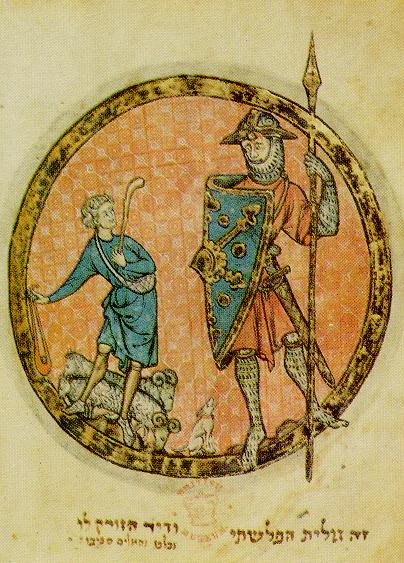Inner City Books
『運命の呼び声』の中で。カール・ユング主要著作入門』の中で、著者のJ・ゲーリー・スパークス氏はこう書いています。
ユングが『ヨブ記』において考えたような、個人が絶望と闘うことは、ミクロコスモスにおいては、社会の中心的価値観や神に対する理解の宗教的変容の始まりとなりうるのです。ユングは、悪とヨブ記に関する考察を通じて明らかにした癒しの力学が、個人から始まり、より広い社会へと広がっていくことを望んでいます。歴史的な変化は、常に誰か、そして誰かから始まるものだと彼は感じていたのだ。(171ページ)
鐘の音のように、個人がより大きな意識に向かって進むことは、たとえ目に見えないレベルであっても、その人が占める時間と空間の社会的瞬間に影響を及ぼします。
したがって、心理的な個性化のプロセスは、集団的な意味合いを持ち、実際、集団の中で、物質世界や歴史との弁証法において、共鳴する「波及効果」を通じてのみ完全に実現される。
このような観点から、個人の意識的な成長が世界を変えることができるという希望的な考え方がある。
運命の呼び声』の中で。スパークスは、ユングの後期の著作が持つ意味合いと、現代文明における人間の意識に対する重要な示唆に焦点を当てています。精神から物質へ、光から闇へ、進歩から後退へと振り子が揺れ動いた2000年の後、現在のミレニアムの私たちの社会で生まれようとしている変革の総合とは何でしょうか。
本書は、エジンガーとユングの著作を、夢と実践的な例を用いて、難解な著作をユングの入門者でも理解できるような言葉に置き換えて解説しています。
Call of Destinyのサブタイトルで言及されている主要な作品は以下の通りです。
- 変容の象徴(Symbols of Transformation)
- ミステリアム・コニアンフィス
- ヨブへの答え
- アイオン
ゲイリー・スパークスはユング研究における多量の教師、作家、思想家であり、マリー=ルイーズ・フォン・フランツの監督下で直接学んだチューリッヒ出身のユング派分析家です。この魅力的な著者がユング派の分析家としての仕事とキャリアについてさらに語るのを聞くには、ローラ・ロンドンのポッドキャスト「Speaking of Jung」www.SpeakingofJung.com(エピソード2、28、35、114、119)を強くお勧めします。
新たに公開された「運命の呼び声」ポッドキャストビデオは、YouTubeでご覧いただけます: https://youtu.be/XWFoo3Ec-58
インナー・シティ・ブックスから出版されているユング派アナリストの著者らをフィーチャーした多くの優れたポッドキャストを制作しているローラの努力と労苦に感謝します。
インナー・シティ・ブックスは、2023年3月に『運命の呼び声』を発売し、活発な出版活動を再開することを嬉しく思います。カール・ユングの主な著作への入門書です。 2023年の計画に関するエキサイティングなニュースについては、当社のウェブサイトをご覧ください! www.innercitybooks.net
In Call of Destiny: Introduction to Carl Jung’s Major Works, author J. Gary Sparks writes:
“The individuals’ struggle with despair … in the way Jung has conceived it in Answer to Job could be, in the microcosm, the beginning of a religious transformation of the society’s central values and understanding of God in the macrocosm. It’s Jung’s hope that the dynamics of healing he has uncovered through his reflections on evil and the Book of Job would start in individuals and then would spread to the wider society. Historical change, he felt, always begins with somebody and somebodies.” (Page 171)
Like a ringing bell, the progress of an individual toward greater consciousness will reverberate – even on an indiscernible level – and have an effect on the social moment in time and space that they occupy.
The challenge of developing consciousness, in Jungian terms, is for individuals to work on themselves and RETURN to the collective; therefore, the process of psychological individuation has collective implications and in fact is only fully realized through its resonating “ripple effect” within the collective and in a dialectic with the material world and history.
From this perspective, there is the hopeful notion that the personal growth toward consciousness of individuals can, in fact, change the world.
In Call of Destiny: Introduction to Carl Jung’s Major Works, Sparks focusses on the implications of Jung’s later writings and their important implications for human consciousness in our civilization. After two thousand years of pendulum swings from the spiritual to the material, from light to dark, from progression to regression – what is the transformative synthesis that is trying to be born in our society in the current millennium?
Providing an illuminating exploration of the work of Edinger and Jung, Sparks uses dream and practical examples to ground these arcane works into language that even the entry level reader of Jung can find comfortable.
The Major Works referred to in Call of Destiny’s subtitle include:
• Symbols of Transformation
• Mysterium Coniunctionis
• Answer to Job
• Aion
Gary Sparks is a prolific teacher, writer and thinker in Jungian scholarship; he is a Zurich-trained Jungian analyst who studied directly under the supervision of Marie-Louise von Franz. To hear this fascinating author describe more of his work and career as a Jungian analyst, we highly recommend Laura London’s Speaking of Jung podcast, at www.SpeakingofJung.com (Episodes 2, 28, 35, 114, 119).
You can check out the newly-released Call of Destiny podcast video on YouTube here: https://youtu.be/XWFoo3Ec-58
Our thanks to Laura for her hard work and labor of love in producing so many excellent podcasts featuring the Jungian analyst authors published by Inner City Books, and others.
Inner City Books is delighted to inaugurate our return to active publishing with the March 2023 release of Call of Destiny: An Introduction to Carl Jung’s Major Works. We welcome you to visit our website for exciting news about our plans for 2023! www.innercitybooks.net
世界史の偉大な出来事は、根本的にはまったく重要ではありません。結局のところ、大切なのは個人の人生です。/ これだけが歴史を作り、ここだけで大きな変革が最初に起こり、未来全体、世界の歴史全体が最終的には個人の中に隠されたこれらの源から巨大な総和として湧き出ます。/ 私たちの最もプライベートで最も主観的な人生において、私たちは時代の受動的目撃者であり、その苦しむ者であるだけでなく、その創造者でもあります。私たちは私たち自身の時代を作ります。/CGユング、1934年
— カール・グスタフ・ユング、移行期の文明、P. 148
“The great events of world history are, at bottom, profoundly unimportant. In the last analysis, the essential thing is the life of the individual.
This alone makes history, here alone do the great transformations first take place, and the whole future, the whole history of the world, ultimately spring as a gigantic summation from these hidden sources in individuals.
In our most private and most subjective lives we are not only the passive witnesses of our age, and its sufferers, but also its makers.
We make our own epoch.”
— Carl Gustav Jung, Civilization in Transition, P. 148
======================================
人類の影の側面は、いまやわれわれすべてのものを圧倒しており、死の閃光や原子爆弾という形で我々の空を暗黒に染めている。小さなものはつねに大きなものによってほとんど無き者にされる。しかし、小さなものは常に生き残る。そして、勝利を収める。ダビデはつねにゴリアトに打ち勝つ。小さなものは自分のなかに奇跡をもっている。というのも、小さなものは人類の歴史がそこを通って歩んでいる創造的な個体だからである。
したがって、小さなものがもっと大きなものであり続ける。今日のような時に、個体性こそ共同体の中心問題であると考える心理学は、一見時代から見捨てられた立場に立つとと思われるかもしれない。しかし、つねに見捨てられた立場こそ、人類にとって決定的な出来事が起こる地点なのである。
ーエーリッヒ・ノイマン著、深層心理学と新しい倫理、悪を超える試みp2-3
ダビデとゴリアト
14 そのとき、女たちはナオミに言った、「主はほむべきかな、主はあなたを見捨てずに、きょう、あなたにひとりの近親をお授けになりました。どうぞ、その子の名がイスラエルのうちに高く揚げられますように。
17 近所の女たちは「ナオミに男の子が生れた」と言って、彼に名をつけ、その名をオベデと呼んだ。彼はダビデの父であるエッサイの父となった。
ルカによる福音書20章
9 そこでイエスは次の・を民衆に語り出された、「ある人がぶどう園を造って農夫たちに貸し、長い旅に出た。
10 季節になったので、農夫たちのところへ、ひとりの僕を送って、ぶどう園の収穫の分け前を出させようとした。ところが、農夫たちは、その僕を袋だたきにし、から手で帰らせた。
11 そこで彼はもうひとりの僕を送った。彼らはその僕も袋だたきにし、侮辱を加えて、から手で帰らせた。
12 そこで更に三人目の者を送ったが、彼らはこの者も、傷を負わせて追い出した。
13 ぶどう園の主人は言った、『どうしようか。そうだ、わたしの愛する息子をつかわそう。これなら、たぶん敬ってくれるだろう』。
14 ところが、農夫たちは彼を見ると、『あれはあと取りだ。あれを殺してしまおう。そうしたら、その財産はわれわれのものになるのだ』と互に話し合い、
15 彼をぶどう園の外に追い出して殺した。そのさい、ぶどう園の主人は、彼らをどうするだろうか。
16 彼は出てきて、この農夫たちを殺し、ぶどう園を他の人々に与えるであろう」。人々はこれを聞いて、「そんなことがあってはなりません」と言った。
17 そこで、イエスは彼らを見つめて言われた、「それでは、『家造りらの捨てた石が/隅のかしら石になった』と書いてあるのは、どういうことか。
18 すべてその石の上に落ちる者は打ち砕かれ、それがだれかの上に落ちかかるなら、その人はこなみじんにされるであろう」。
Gospel of Luke Chapter 20
9 Then began he to speak to the people this parable; A certain man planted a vineyard, and let it forth to husbandmen, and went into a far country for a long time.
10 And at the season he sent a servant to the husbandmen, that they should give him of the fruit of the vineyard: but the husbandmen beat him, and sent him away empty.
11 And again he sent another servant: and they beat him also, and entreated him shamefully, and sent him away empty.
12 And again he sent a third: and they wounded him also, and cast him out.
13 Then said the lord of the vineyard, What shall I do? I will send my beloved son: it may be they will reverence him when they see him.
14 But when the husbandmen saw him, they reasoned among themselves, saying, This is the heir: come, let us kill him, that the inheritance may be ours.
15 So they cast him out of the vineyard, and killed him. What therefore shall the lord of the vineyard do unto them?
16 He shall come and destroy these husbandmen, and shall give the vineyard to others. And when they heard it, they said, God forbid.
17 And he beheld them, and said, What is this then that is written, The stone which the builders rejected, the same is become the head of the corner?
18 Whosoever shall fall upon that stone shall be broken; but on whomsoever it shall fall, it will grind him to powder.


